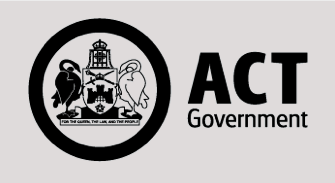Commonly used terms
Accused
A person who is alleged to have committed an offence.
Acquit
To find an accused person not guilty at a trial.
Adjourn
To delay a court hearing until later that day, to a specified day or indefinitely.
Affidavit
A document that contains facts given under oath and submitted in court as evidence.
Antecedent Report
A report that lists a person’s previous criminal convictions.
Appeal
Appeals against a court's decision are made to and determined by a higher court. Appeals can be against a sentence and/or conviction. If, on appeal, a lower court is found to have made an error, the appeal is upheld and the decision of the lower court is quashed or overturned.
In the case of an appeal against a sentence, a different sentence will be substituted. In the case of an appeal against conviction, a new trial can be ordered or a verdict of acquittal entered.
If no error or substantial miscarriage of justice is found, the appeal is dismissed and the decision of the lower court is affirmed.
Appellant
A person appealing against a conviction or sentence.
Arraignment
After a defendant is committed to stand trial in the Supreme Court he/she must formally plead to the charges. This first appearance in the Supreme Court is the arraignment.
Arrest
To apprehend or take into custody a person suspected of having committed a crime.
Bail
Once a person has been arrested and charged with an offence, that person must remain in gaol unless they have legal authority to be out of gaol. When a person receives this authority, they are granted bail. Bail may be on the accused's own promise to appear or with a guarantee and subject to conditions.
Burden of Proof
This refers to the level of proof required before an accused can be found guilty. In most criminal cases the prosecution bears the burden of proof beyond reasonable doubt.
Committal Proceedings
After a person is charged with a criminal offence they appear before a magistrate who decides if there is enough evidence upon which to order that a defendant stand trial before a judge and jury.
Committed for Sentence
If at the committal proceedings in the Magistrates Court the accused admits to having committed the offence as charged, the magistrate will order the accused person to appear before the Supreme Court to be sentenced according to law.
Convicted
An accused is convicted of an offence if they plead guilty or are found guilty by a judge or jury.
Crown
The Crown means the State.
Defendant
In the Magistrates Court, the accused may be referred to as the defendant.
Exhibit
A document or physical item tendered as evidence in a court hearing or referred to in an affidavit.
Forfeiture Orders
Orders granted under the Criminal Assets Confiscations Act 1995 that confiscate property of a person convicted of a criminal offence.
Indictable Offence
A charge for which the accused has an initial right to be tried by a judge and jury.
Information
The document that sets out the offence or offences that an accused is alleged to have committed and in relation to which the accused must stand trial and be sentenced if found guilty.
Major Indictable Offence
Indictable offences where the maximum term of imprisonment exceeds five years. All major indictable offences are heard and determined in the Supreme Courts.
Nolle Prosequi
When a charge is discontinued because the Director of Public Prosecutions declines to prosecute.
Non Parole Period
When a judge imposes a sentence of imprisonment, a non parole period will be imposed. This is the minimum period the prisoner will serve before he/she is eligible for release. If this period is greater than five years, the release of the prisoner is dependant upon the Parole Board and, in cases of murder, the Governor in Executive Council.
Not Guilty
Proceeded to trial and acquitted of the charge.
Plea
The formal response of an accused to the charges. The plea is either 'guilty' or 'not guilty'.
Precedent
A judicial decision on a point of law that binds all lower courts.
Proofing
A meeting between the victim/witness and the solicitor/prosecutor and/or Witness Assistance Officer. Proofings may occur at various stages throughout the justice process.
Restraining Orders
These are made by a court to place restraints on the defendant to prevent them from acting in a particular manner.
Domestic violence restraining orders prevent a defendant from contact with specific people or visiting specific addresses.
Restraining orders under the Criminal Assets Confiscation Act 1995 prevent someone from disposing of or otherwise dealing with specified property until criminal offences and confiscations proceedings are resolved.
Paedophile restraining orders prevent a defendant from loitering near children or in the vicinity of specified locations, for example, schools, malls, playgrounds and toilets.
Sentence
The penalty imposed on the accused. The judge will usually set a non parole period.
Subpoena
A legal document requiring attendance in court to give evidence and/or of the production of a document or exhibit.
Summary Offence
A minor offence heard and decided in a Magistrates Court and not sent for trial before a judge and jury.
Suspended Sentence
Following a sentence of imprisonment, the judge may suspend it on condition that the defendant enters into a bond to be of good behaviour and to comply with any other conditions of the bond.
No Evidence to Offer (NETO)
Where no evidence is tendered on charges in the Magistrates Court.
Voir Dire
Legal argument in the absence of the jury.

